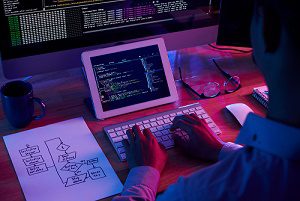
"Empower your research with Python programming skills"
MODE
Virtual (Google Meet)
TYPE
Mentor Based Workshop
LEVEL
Beginners Level
DURATION
1 Hr/ Day
TIMINGS
IST 11:00AM- 12:00PM
About Workshop:
The workshop will teach individuals with little or no programming experience how to use the Python language to analyze and gain insights from biomedical data. It covers the basics of the Python language and introduces some popular libraries and frameworks used in the field of biomedical data science. The workshop is intended for beginners and will guide them through the process of performing complex data analysis tasks.
The aim of this workshop is to introduce biologists and life scientists to the basics of Python programming and its applications in data analysis and visualization. The objective is to provide hands-on training in using Python for common tasks in biology, such as sequence analysis.
What you will learn?
- Python Basics
- Installation
- Python Data types - Numeric and String
- Python Data Structures - List, Tuple, Dictionary - with examples from Biotechnology
- Python control flow - if else and loops - DNA and Protein sequence analysis
- Generating complement and reverse complement of a DNA Sequence
- Program to calculate DNA composition and melting temperature of primer
- Program to find if a given DNA sequence has recognition sequence for a given restriction site
- Python - File handling and Pandas library for data analysis
- Reading and writing to a file
- Reading a dataframe through Pandas and basic biological data analysis
Important Dates
Registration Ends
12th Feb 2023
At IST 10:00 AM
Fee Plan
Student
1399/-
USD 35
Academician
INR 2699/-
USD 50
Intended For: Students, Graduates, Postgraduates, Academicians, Biologists, Life scientists, Biomedical researchers and Researchers.
Skills you will Gain
Attendees of the workshop will gain a number of skills, including:
Basic Python programming skills
Attendees will learn how to write and execute Python code, understand data types, variables, and control structures, and use common Python libraries and modules
Problem solving skills
Attendees will learn how to use Python to solve problems and answer questions related to biological data, and how to apply their skills to real-world data analysis tasks.
Bioinformatics skills
Attendees will learn how to use Python for bioinformatics tasks, such as sequence analysis, gene expression analysis, and phylogenetics, using popular libraries such as Biopython and scikit-bio.
Learning by doing
Hands-on experience and practice are key for learning programming and data analysis. Attendees will have the opportunity to practice their new skills during the workshop and will have access to the materials and resources to continue learning after the workshop.
Automation skills
Attendees will learn how to use Python to automate repetitive tasks, such as data processing and analysis, and how to use Python scripts to perform these tasks on large datasets.
Collaboration skills
Attendees will learn how to use Python in combination with other tools, such as R, for data analysis and visualization, and how to effectively collaborate with other biologists and programmers on data analysis projects.
Data analysis and manipulation skills
Attendees will learn how to use Python to perform common data analysis tasks, such as data cleaning, filtering, and transformation, and use popular libraries such as pandas, numpy and matplotlib for data visualization.
Workshop Outcomes
- Understand the basic concepts of Python programming, such as data types, variables, and control structures
- Use Python to perform common tasks in biology, such as sequence alignment, phylogenetics, and gene expression analysis
- Use popular Python libraries for bioinformatics and data analysis, such as Biopython and scikit-bio
- Use Python to visualize and analyze data, using popular libraries such as matplotlib and pandas
- Understand the basics of data structures and data wrangling in Python
- Be able to write simple Python scripts to automate repetitive tasks
- Be able to use Python in combination with other tools, such as R, for data analysis and visualization
- Be familiar with the resources available to continue learning and developing their Python skills.
In summary, the workshop would provide attendees with a solid foundation in Python programming, as well as the skills and knowledge to apply it to common tasks in biology and life sciences, and be able to pursue further learning on their own.
